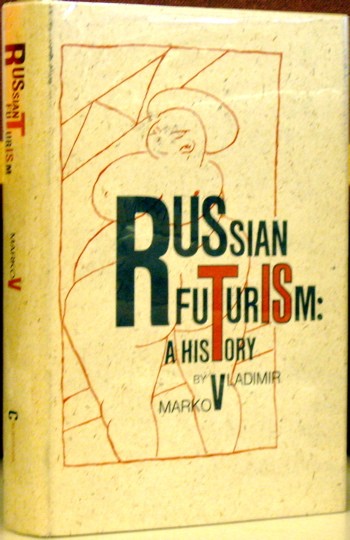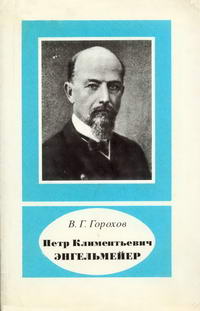Gerald Janecek: Zaum: The Transrational Poetry of Russian Futurism (1996)
Filed under book | Tags: · art, art history, avant-garde, futurism, poetry, russia

“This is the most comprehensive treatment of a significant episode of the historical avant-garde period to which many refer but with little concrete background. According to Charlotte Douglas (Russian and Slavic Studies, NYU), Zaum ‘is an encyclopedic account of zaum or ‘beyonsense,’ the most distinctive feature of Russian avant-garde art and poetry early in the 20th century. Janecek has mined a myriad of arcane and inaccessible sources, gathered the entire historical record in one place, and made it readable and comprehensible. His account of zaum theory and practice will be indispensable for anyone interested in modern poetry and art. Certainly it will become a standard text for all students of Russian Futurism.'”
Publisher San Diego State University Press, 1996
ISBN 1879691418, 9781879691414
xi+427 pages
via greatjob
Review: Walter Comins-Richmond (Slavic and East European J, 1997).
PDF (removed on 2017-8-21 upon request of the publisher – read the Introduction)
See also Vladimir Markov’s Russian Futurism: A History
Comment (0)Vladimir Markov: Russian Futurism: A History (1968)
Filed under book | Tags: · 1910s, art, art history, avant-garde, cubo-futurism, ego-futurism, futurism, impressionism, poetry, russia, zaum

“Vladimir Markov’s Russian Futurism: A History is the classic in its field. Its learned account of Russian avant-garde poetics with respect to various forms and genres-poems, plays, artist’s books, manifestos-is still the first I turn to when I want to review the critical information about Futurist manifestos or Khlebnikov’s long poems and stories, or the collaborations of Goncharova and Kruchenykh.” – Marjorie Perloff
Publisher University of California Press, 1968
ISBN 9780520008113
467 pages
via greatjob
Reviews: Helen Muchnic (Russian Review, 1969), Xenia Gasiorowska (Slavic and East European Journal, 1970), Maurice Friedberg (Problems of Communism, 1970), Edward Wasiolek (Modern Philology, 1972).
Comment (0)Vitaly G. Gorokhov: Peter Klimentjevich Engelmeyer: Mechanical Engineer and Philosopher of Technology, 1855-1941 (1997) [Russian]
Filed under book | Tags: · biography, engineering, philosophy of technology, russia, technology

P. K. Engelmeyer was an engineer, philosopher of technology and creativity, encyclopedist, musician and painter. In his time, he belonged to the influential engineers, consultants, contractors and representatives in national and international technical organizations.
Inspired by the writings of a number of philosophers (Ernst Mach, Ernst Kapp, Alfred Espinas, Fred Bon), Engelmeyer set out to contribute to the emerging field of philosophy of technology. In 1898, he published the book Technical Summary of the 19th Century, in which he outlined main tasks and the program of the philosophy of technology.
He used the concept of “technology” [техника] in a broad sense to signify all the human knowledge and skills aimed at practical goals. In this sense, “technology” included: firstly, applied mechanics, physics, chemistry; secondly, the mechanical and chemical technology, metallurgy, architecture, art of engineering of buildings, shipbuilding, fortification; thirdly, all crafts; fourthly, agricultural technics; and finally, social and moral reasoning.
В книге описывается жизнь и деятельность выпускника Императорского Московского технического училища, инженера-механика и изобретателя, выдающегося философа техники, создателя теории технического творчества и автора первых русских работ по привилегированию изобретений Петра Климентьевича Энгельмейера. Годы жизни Энгельмейера пришлись на сложный период российской истории после отмены крепостного права и развития промышленной России вплоть до Великой Отечественной войны. Его судьба тесно связана с судьбой российского инженерного корпуса. В связи с этим в книге исследуется развитие профессиональной организации инженеров (прежде всего Московского политехнического общества, Императорского Русского технического общества, Всероссийской ассоциации инженеров) в России, их гуманитарной деятельности и связей с такими обществами в других странах (прежде всего с Союзом немецких инженеров), а также высшего технического образования. Исследуется возникновение философии техники как нового направления научно-философской и инженерной мысли в конце IX — начале XX в. Рассматриваются многочисленные труды П. К. Энгельмейера по философии техники, теории творчества, изобретательства, проектирования и др. Для читателей, интересующихся историей российского инженерного корпуса, философией техники и теорией творчества.
Русский инженер и философ техники Петр Климентьевич Энгельмейер (1855–1941)
Publisher Nauka, Moscow
223 pages
PDF (DJVU)
Engelmeyer at Monoskop wiki

